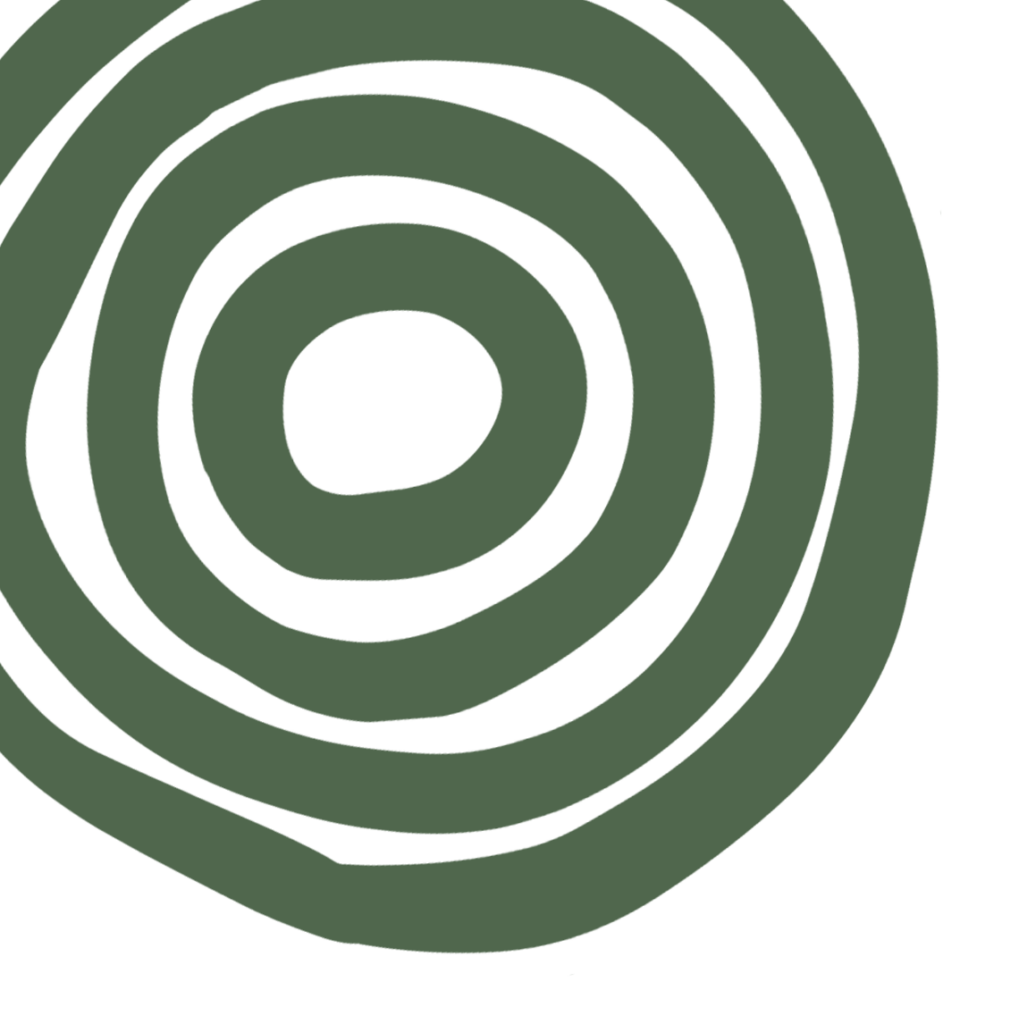Group Gatherings

The connections made at the TREES Gathering continue online through Supportive Circles; these monthly meetings allow members of the TREES Network to further develop the relationships that began or continued at the Gathering and engage in discussions about their Early Years programs.
The MFI’s 2022 Leadership Exchange had 24 people in attendance: one guest, nine staff from MFI and 14 staff from partner organizations. These organizations included Yukon First Nation Education Directorate (YFNED), Maskwacis Health Services (MHS), Ilitaqsiniq, Tajikeimɨk, and the University of Alberta. Relationships are at the centre of MFI’s work with Indigenous organizations and communities, and we work in close collaboration with our partners to support children and their families. MFI recognizes that, to build and strengthen these relationships, we need to connect not only online but in person as well—to share, learn and work together. Our goal in hosting the inaugural Leadership Exchange was to provide time and space for us to do just that.
Another significant activity that took place during the gathering was a planning session surrounding Supportive Circles, which are reoccurring meetings in which members build relationships and deepen their knowledge by sharing best practices and regularly interacting with each other. Supportive Circles balance learning, practice, and building community through a collaborative emphasis on each of these components. During the planning session, participants shared strengths and weaknesses associated with different types of Supportive Circles and worked together to brainstorm ways to improve them. Another related activity was an adapted version of the game Snakes and Ladders. Small groups gathered around a game board and took turns rolling the dice. Each square on the board included a question about the topic at hand (in this case, Supportive Circles), which the person rolling the dice answered. This activity prompted insightful discussion amongst group members and led to a revised approach that we believe will produce more meaningful experiences for all future Supportive Circles participants.
The 2024 TREES Gathering, hosted by MFI and YFNED, had 37 attendees: five guests, seven staff from MFI and 25 staff from partner organizations. These organizations included YFNED, MHS, Wolastoqey Tribal Council Inc., Ilitaqsiniq, First Light Friendship Centre, Tsuut’ina Nation, Native Child and Family Services of Toronto, Tajikeimɨk, Tłı̨chǫ Government, and Fraser Region Aboriginal Friendship Centre.
The gathering’s keynote speaker on day one was Kathleen Gorman, who has been working in the fields of trauma, mental health, addiction, and domestic and sexual violence for over 40 years. Kathleen is passionate about supporting helpers of all kinds with ways to develop sustainable self-care practices for the mind, body, and spirit. She is particularly passionate about supporting Indigenous helpers with navigating the complex roles in which they may find themselves while doing this vital work in their communities. Day one also included a workshop on self-care that built on topics discussed in the keynote address. Participants valued these discussions and many commented that they will use the shared resources and ideas in their own work and for themselves.
The second day began with the workshop “Creating Conditions for Success in Programming.” The goals of this session were to facilitate conversations exploring the benefits of evaluation, provide opportunities to assess the purpose of program activities, identify feasible ways to measure impact, and understand the organic connection between evaluation, program development, and capacity building. Participants appreciated having time to learn more about others’ programs and the implications of evaluation. A few participants shared that they plan to facilitate a similar workshop with their own team. The second day also included cultural events such as a guided tour of Whitehorse that centred the Indigenous history and practices of Whitehorse and a visit to the Kwanlin Dün cultural centre for a tour with their Elder in residence.
On the final day of the 2024 gathering, YFNED hosted a Day on the Land at their Amä Kù campus. This day included a tour of the site, which has greenhouses, a smokehouse, bee hives, a gathering area with a fire, an Elder’s lodge and more. Workshops on this day included medicine making with Elder May and hand games with the YFNED First Nation Education Advocates.
We would like to thank MHS and YFNED for hosting and sharing their program spaces; we recognize the value of gathering groups from coast to coast to learn from members of the host site and we appreciate our hosts’ generosity. These gatherings provide an environment where those with extensive experience in Early Years programming can actively share their knowledge with those who are at the start of their journey. While we recognize the benefits and ease of meeting online, gathering in person for co-learning and collaboration is an invaluable experience. Meeting in person creates opportunities for people in different roles to come together and brainstorm effective strategies to engage families, face new challenges and support each other through a variety of activities.
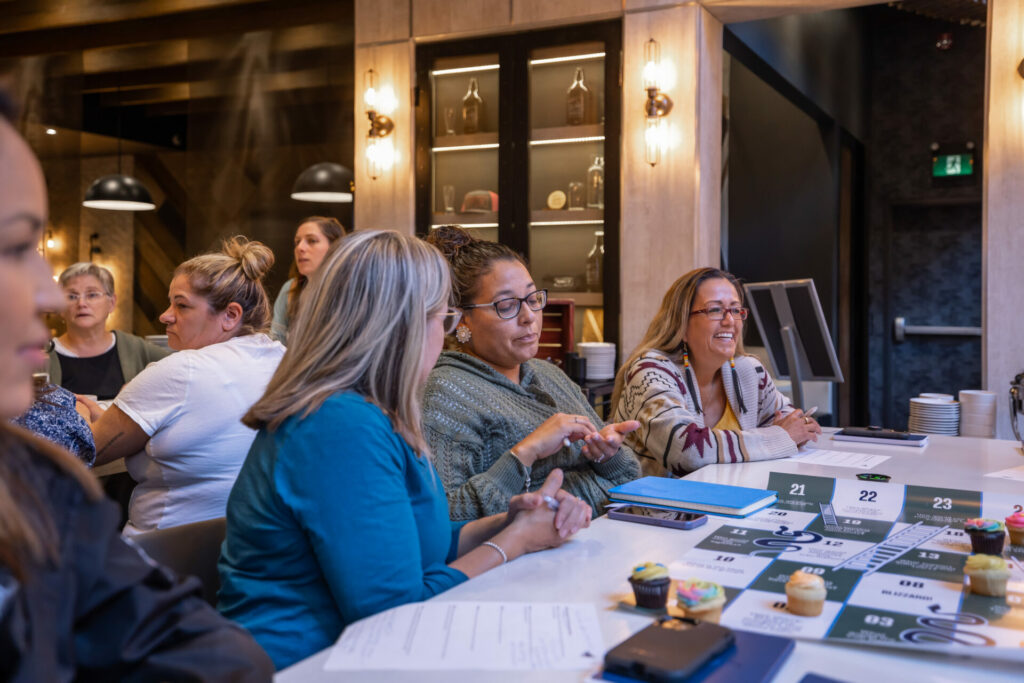
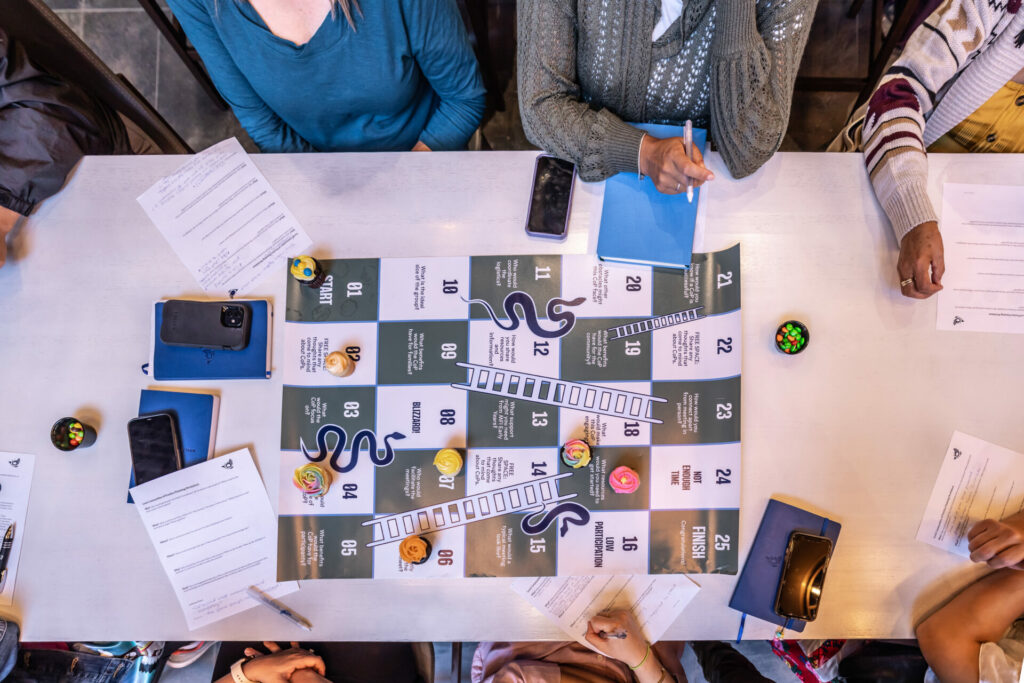
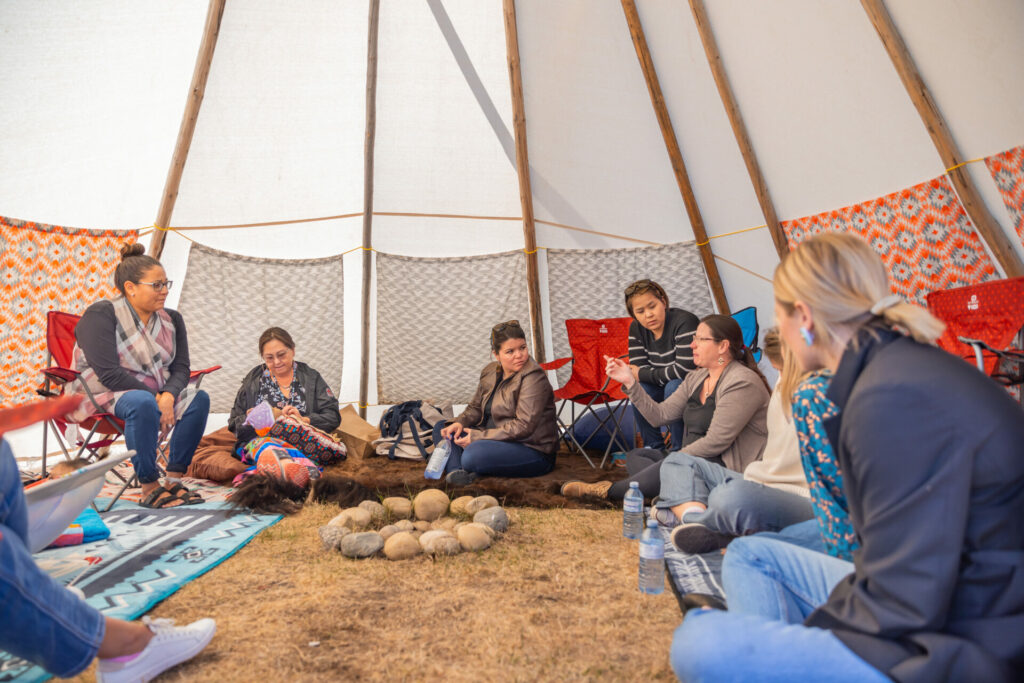
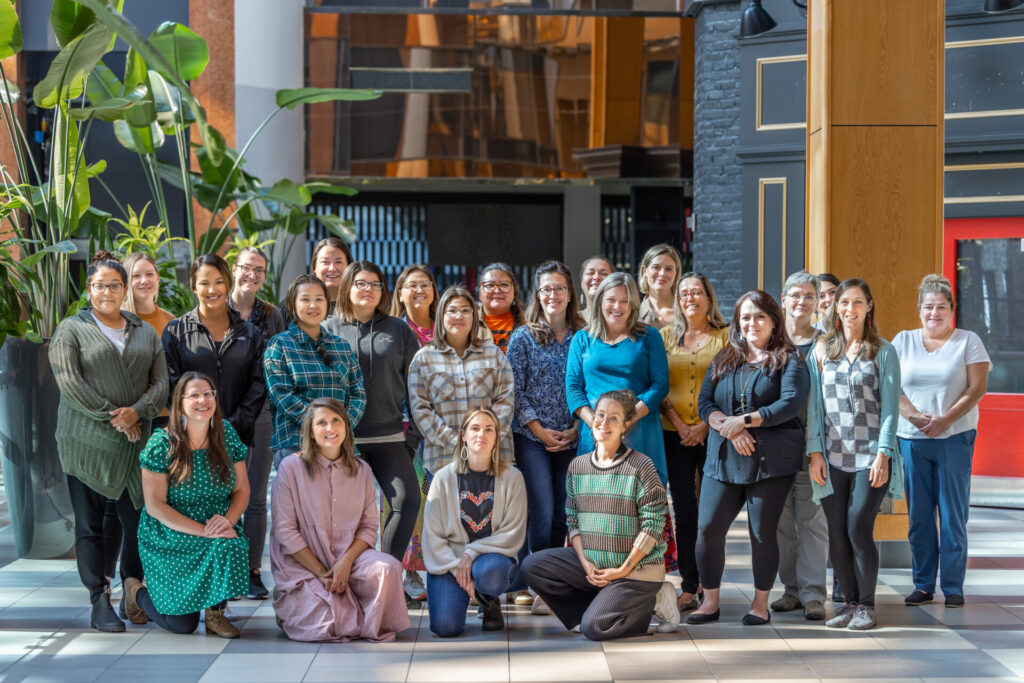
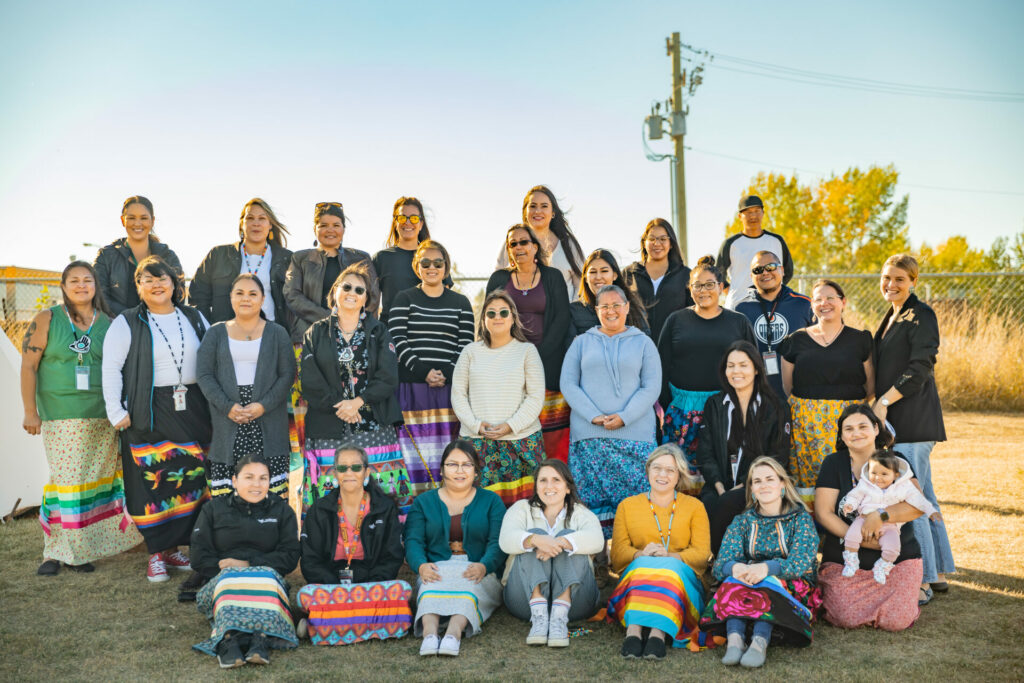
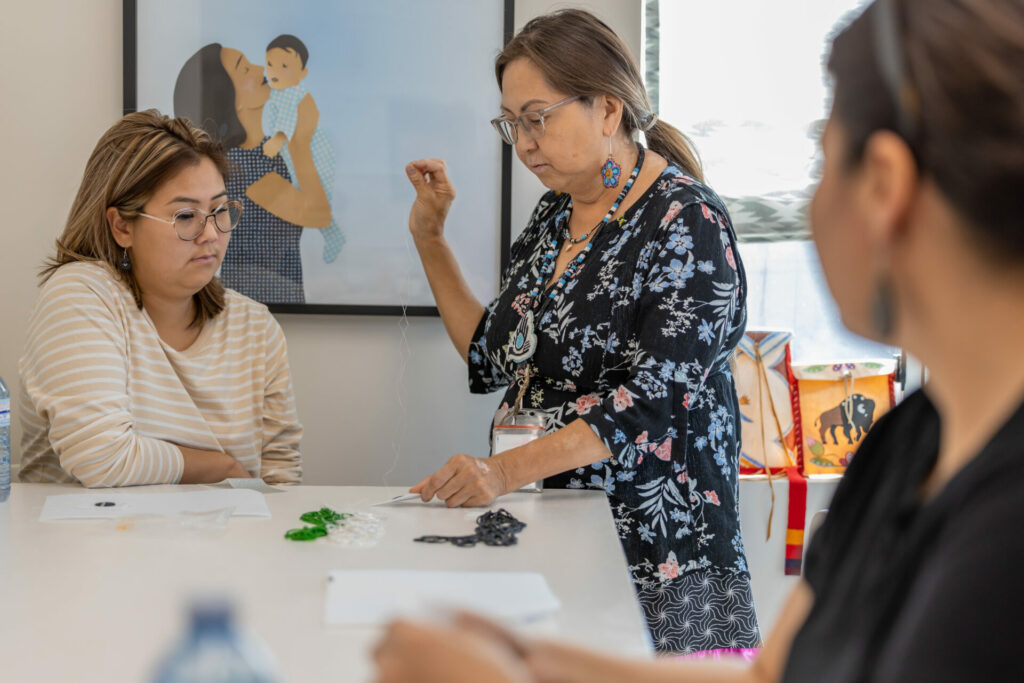
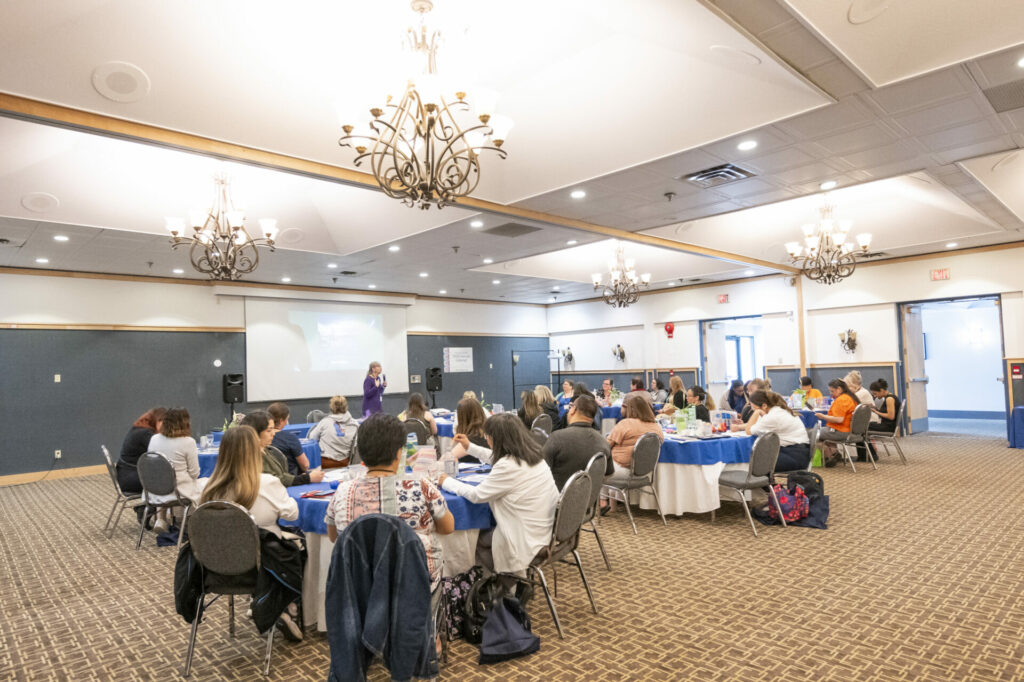
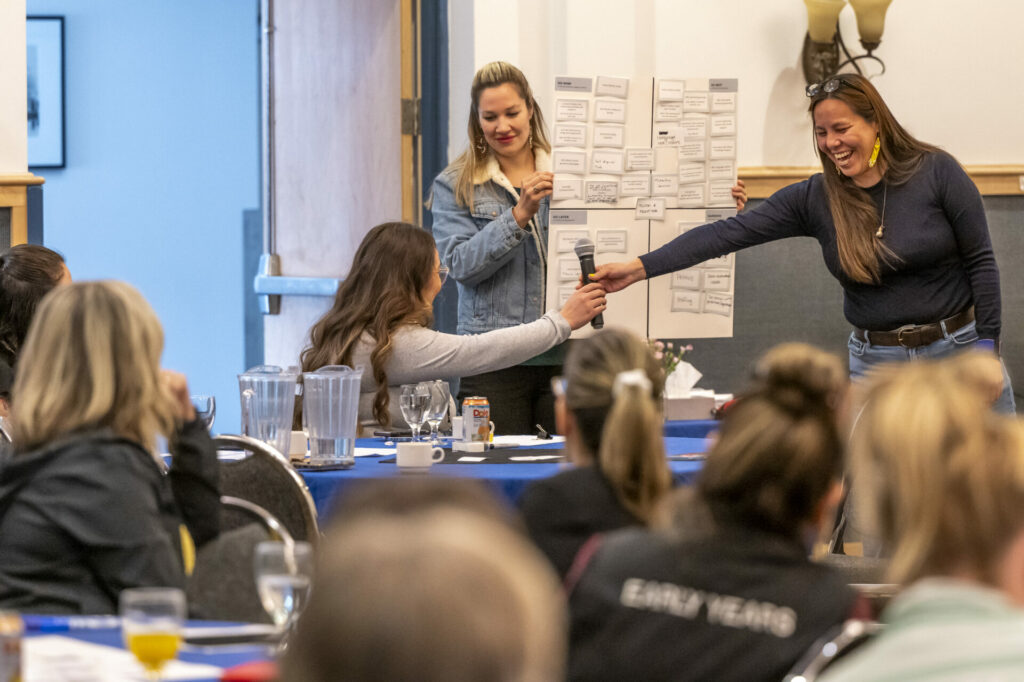
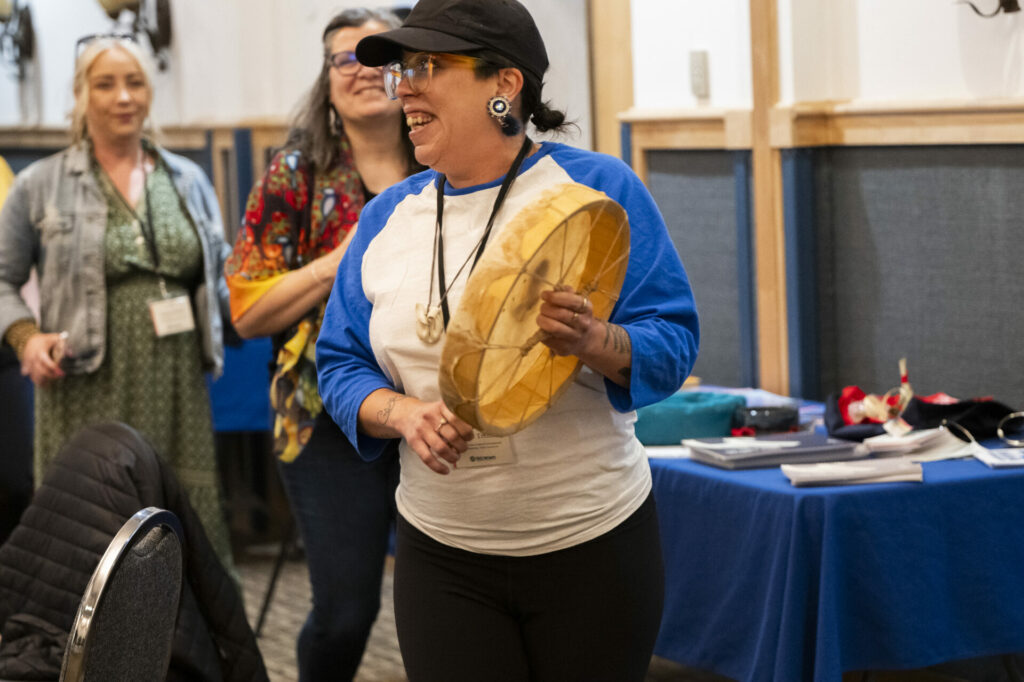
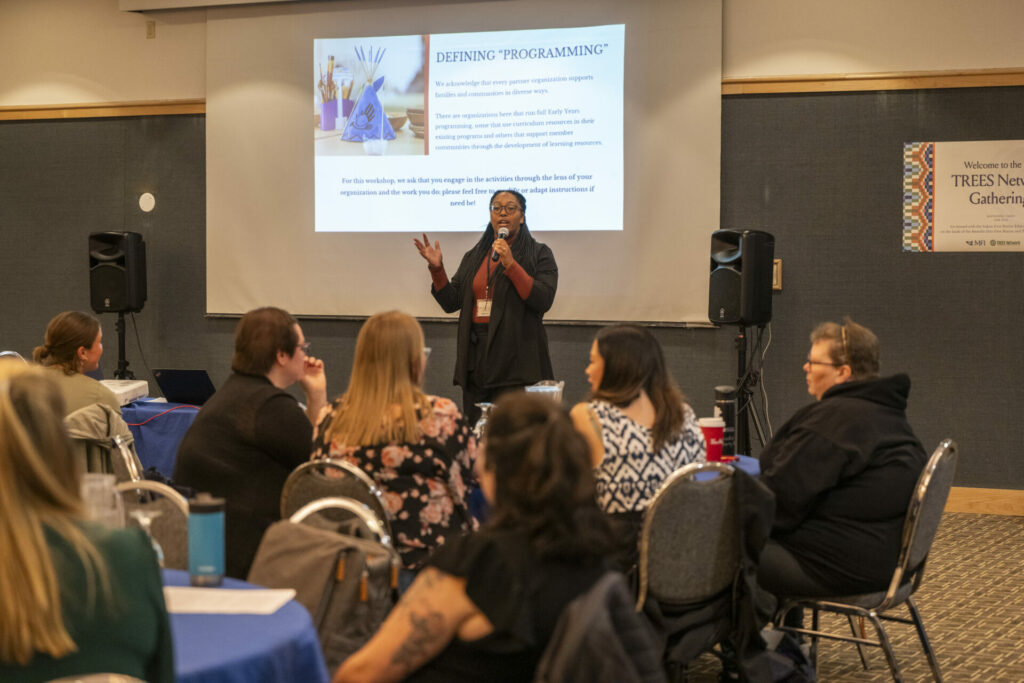
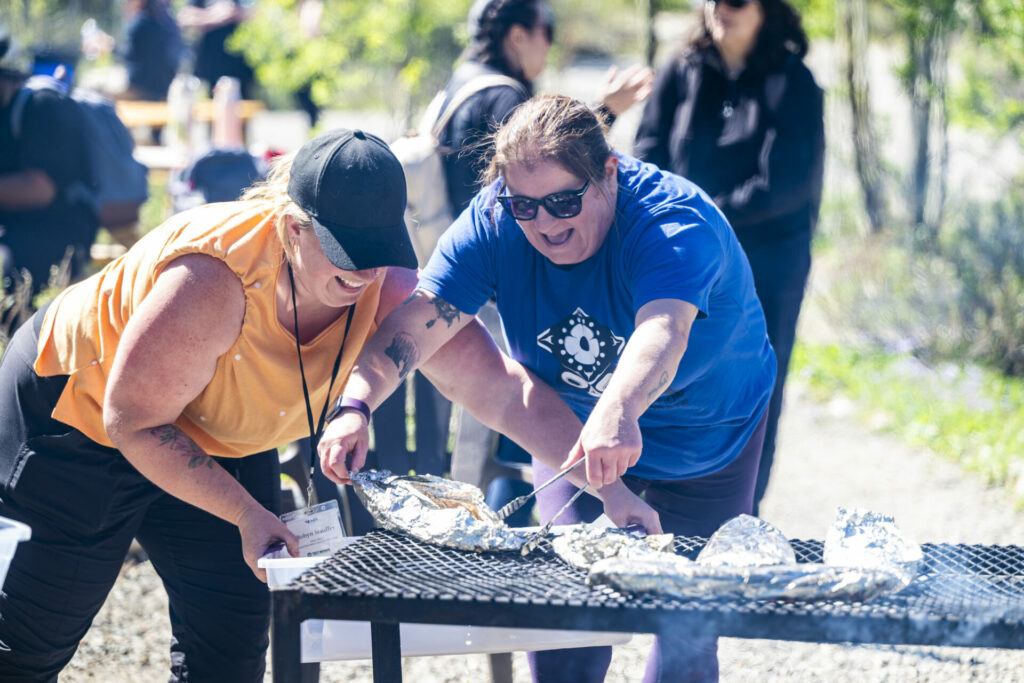
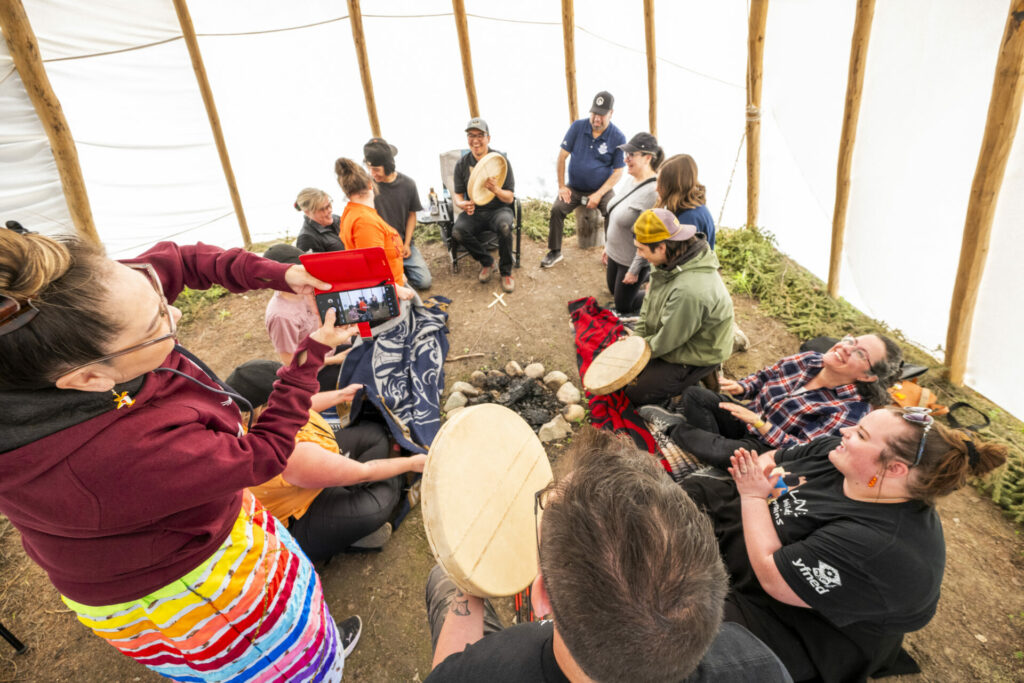

Access the TREES Gatherings Discussions Page
This discussion page is for gathering participants and features resources and photos.


